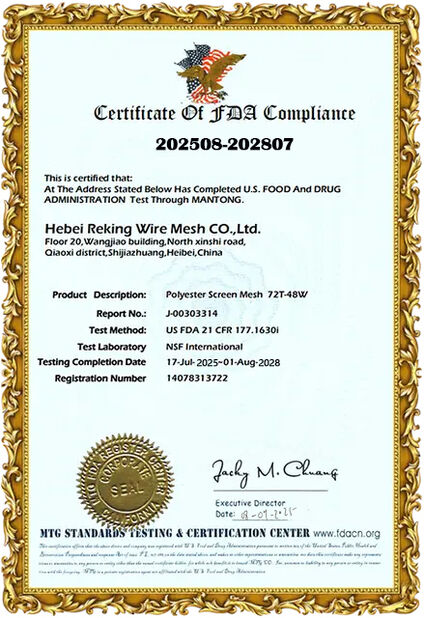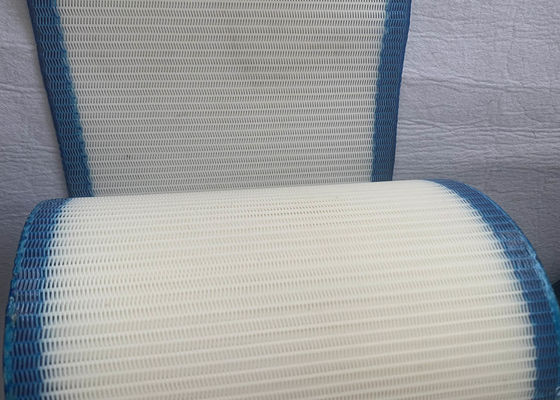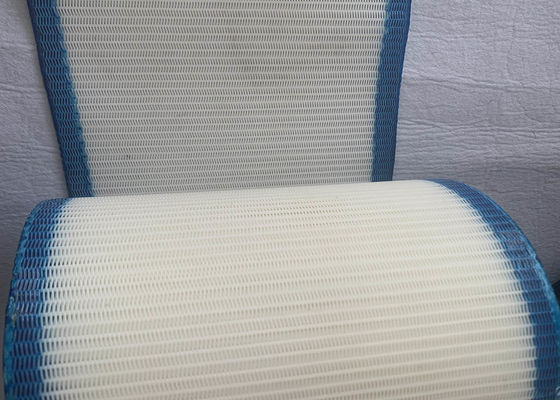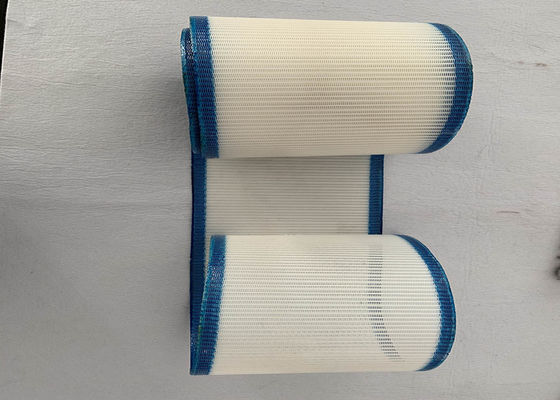Papermaking Mesh for Dehydrators, Polyester Formed Mesh, Washing Pulp Dewatering Mesh Belt
Product Introduction:
Polyester forming mesh is a critical industrial textile widely used in the papermaking, environmental protection, and non-woven fabric industries, celebrated for its excellent mechanical properties, chemical stability, and long service life. Crafted from high-quality polyester filaments (typically PET, polyethylene terephthalate), this mesh boasts outstanding resistance to abrasion, hydrolysis, and most organic solvents—making it suitable for long-term operation in wet, high-temperature, and chemically active environments, a key advantage over traditional metal or nylon meshes.
The manufacturing process of polyester forming mesh involves precision weaving using advanced rapier or air-jet looms, followed by heat-setting and surface treatment to enhance dimensional stability and wear resistance. Its structure is mainly divided into single-layer, double-layer, and multi-layer designs. Single-layer mesh, with a simple plain or twill weave, is ideal for producing thin papers like tissue and cultural paper, ensuring uniform water drainage and smooth paper surface. Double-layer and multi-layer meshes, featuring a composite structure with upper and lower layers connected by binding wires, offer higher mechanical strength and load-bearing capacity, making them perfect for heavy-duty papermaking (e.g., cardboard, kraft paper) or sludge dewatering in environmental engineering. The mesh’s key parameters—such as aperture size (ranging from 0.1mm to 5mm), mesh count (20-200 wires per inch), and thickness (0.3mm-5mm)—can be customized to match specific production requirements.
In practical applications, polyester forming mesh plays an irreplaceable role. In the papermaking industry, it acts as the core component of the paper machine’s forming section, supporting the fiber suspension, draining water efficiently, and shaping the paper web while preventing fiber loss, thus improving paper quality and production efficiency. In environmental protection, it is used in belt filter presses and vacuum filters for sludge dewatering in municipal sewage treatment and industrial wastewater treatment, effectively separating solid and liquid phases with low maintenance costs. Additionally, it finds applications in non-woven fabric production (as a forming substrate) and food processing (for filtering and conveying, complying with food-grade safety standards).
Compared to alternative materials, polyester forming mesh offers distinct benefits: it is lightweight, reducing the load on equipment; it has low friction, minimizing energy consumption; and it is easy to clean, reducing downtime for maintenance. With its customizable specifications, excellent performance, and wide application range, polyester forming mesh has become an essential material for modern industrial production, meeting the high standards of efficiency, durability, and environmental friendliness required by various sectors.
.
Parameter table
Wire Diameter(mm) |
Tensile
Strength
(N/cm) |
Weight
Kg/m² |
Thickness
mm |
Air
Permeability
m³/m²h |
CFM
127/pa |
Spiral
wire |
Connection
wire |
Filter
material
monofilament |
| 0.50 |
0.80 |
0.60*3 |
1800 |
1.50 |
2.1 |
4480 |
280 |
| 0.68 |
0.90 |
0.80*4 |
2000 |
2.0 |
2.45 |
6080 |
380 |
| 0.68 |
0.90 |
0.90*3 |
2000 |
190 |
2.45 |
5760 |
360 |
| 0.68 |
0.90 |
0.80*3 |
2000 |
1.85 |
2.45 |
7750 |
484 |
| 0.68 |
0.90 |
Flat wire2.10.80 |
2000 |
1.80 |
2.45 |
9oo⁰ |
563 |
| 0.68 |
0.90 |
Flat wire2.40.88 |
2000 |
1.85 |
2.45 |
8000 |
500 |
| 0.68 |
0.90 |
Conductive carbon wire |
2000 |
1.60 |
2.45 |
10000 |
625 |
| 0.90 |
0.90 |
0.90*3 |
2300 |
2.30 |
3.03 |
7500 |
468 |
| 0.90 |
1.10 |
1.04 |
2000 |
2.40 |
3.15 |
6240 |
390 |
| 0.90 |
1.10 |
1.23 |
2000 |
2.25 |
3.15 |
6240 |
390 |
| 1.0 |
0.90 |
1.0*3 |
2000 |
2.50 |
3.60 |
5000 |
315 |
| 1.20 |
1.30 |
1.2'3 |
2600 |
2.85 |
4.30 |
7500 |
468 |
Product application
Polyester mesh finds diverse applications. In papermaking, it aids sheet formation; in sewage treatment, filters impurities. It sieves food, separates in pharmaceuticals, and enables screen - printing, boosting efficiency across industries.
Product advantage
The edges of the sieve are smoothed by thermal sealing, reinforced in a width of about 4 cm with a two-component flexible adhesive. The sieves are connected into an endless strip by a demountable stainless steel (AISI 316) clipper joint. Another option for connecting the sieve into an endless strip is a woven non-separable joint, which has a longer service life than the clip joint, but can only be used on machines that allow the installation of an endless belt.
Filter screens are used as endless strips connected by a detachable or non-separable joint.
The edges of the filter screens are melted and reinforced with mechanically resistant flexible two-component adhesive. Triangular reinforcement of the joint at the edges of the sieve increases the mechanical resistance of the joint.
We' re professional manufacturer& supplier of Nylon filter mesh& Polyester filter mesh.
With all available items and size you need.
Packing & Delivery
The common shipping:
1.for small quantity, shipped by courier.
2.for large quantity, shiped by air or by sea.
3.tracking number will be emailed to you after order has been shipped.
4.If you have forwarder in China, we can send to your forwarder for free.




 Your message must be between 20-3,000 characters!
Your message must be between 20-3,000 characters! Please check your E-mail!
Please check your E-mail!  Your message must be between 20-3,000 characters!
Your message must be between 20-3,000 characters! Please check your E-mail!
Please check your E-mail! 





